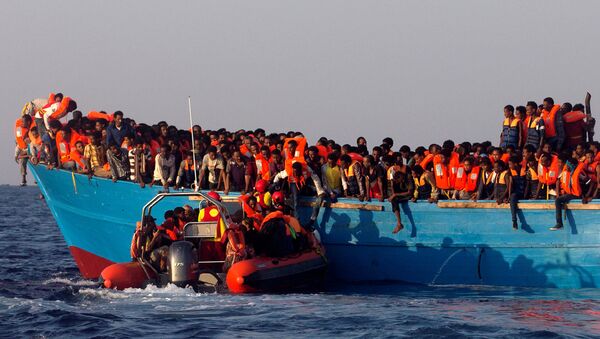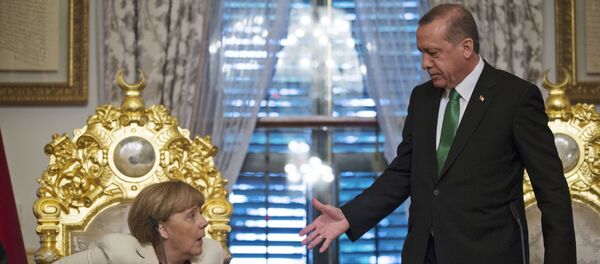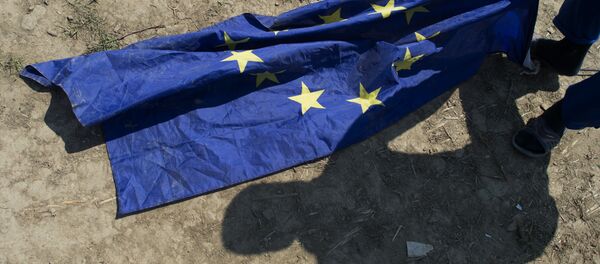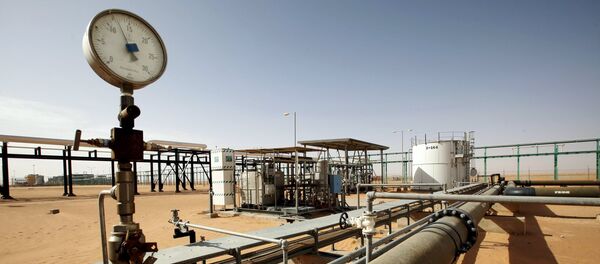The European People's Party (EPP), a center-right coalition in the European Parliament, has proposed reaching an agreement with the North African countries which many migrants and refugees depart when they cross the Mediterranean Sea to reach Europe.
"To stop the uncontrollable flow of refugees into European countries, we have to change our migration policy. One possibility is to close direct access to EU countries, and send the refugees to a third country," a source in the EPP told Izvestiya.
"These countries should be those which these people are coming from. It is crucial to restore peace there. The Spanish parliament has already approved returning refugees who arrive there back to Morocco. We need to establish a similar mechanism with North African countries."
Austrian MEP Barbara Kappel, a representative of the Freedom Party of Austria, told Izvestiya that the EU needs to "send refugees back to where they came from," particularly North African countries.
"Spain has a great agreement with Morocco; Spanish border guards send every group of refugees back there. Italy should do the same thing with the migrant boats that arrive. Every year they get tens of thousands of people who are fleeing war in Africa. All EU countries need to agree on a rule to send refugees back to the country where they came from," Kappel said.
"In order to solve the migrant crisis in Europe, in order to restore peace for the citizens of the EU, it is necessary to reach an agreement with Libya and restore peace in that country. Otherwise, the situation which is happening today in the Middle East and North Africa will happen again in European countries," Kappel said.
African refugees and migrants regularly attempt to travel via Morocco to Spain, which has two enclaves, Melilla and Ceuta, that border Morocco in North Africa. Spain has erected three border fences along its border with Morocco, which migrants attempt to cross.
In June a group of 100 migrants from sub-Saharan Africa attempted to jump the fences and enter the EU, 30 of whom were successful. Over the first six months of this year, there were ten attempts by migrants to storm the fence, with some 50 migrants managing to get into Melilla, The Local reported.
In February the EU Commission declared that Spain's migration policy in Melilla and Ceuta, dubbed "hot returns," is compatible with EU law, although it has been criticized by Human Rights Watch and Amnesty International.
Spanish security forces expel migrants discovered in the border region back to Morocco, which then sends them back to their country of origin.
Spain has also signed bilateral agreements with Mauritania and Senegal, and stepped up coastal patrols, maritime surveillance and border checks at its main ports to stop illegal migration.
According to the EU's border agency Frontex, there were 7,164 illegal border crossings via the Western Mediterranean in 2015, compared with 153,946 across the Central Mediterranean, from Libya to Italy and Malta. From January to June this year, the figures are 3,402 and 96,465 respectively, while 164,796 reached Europe via the Eastern Mediterranean route to Greece.






